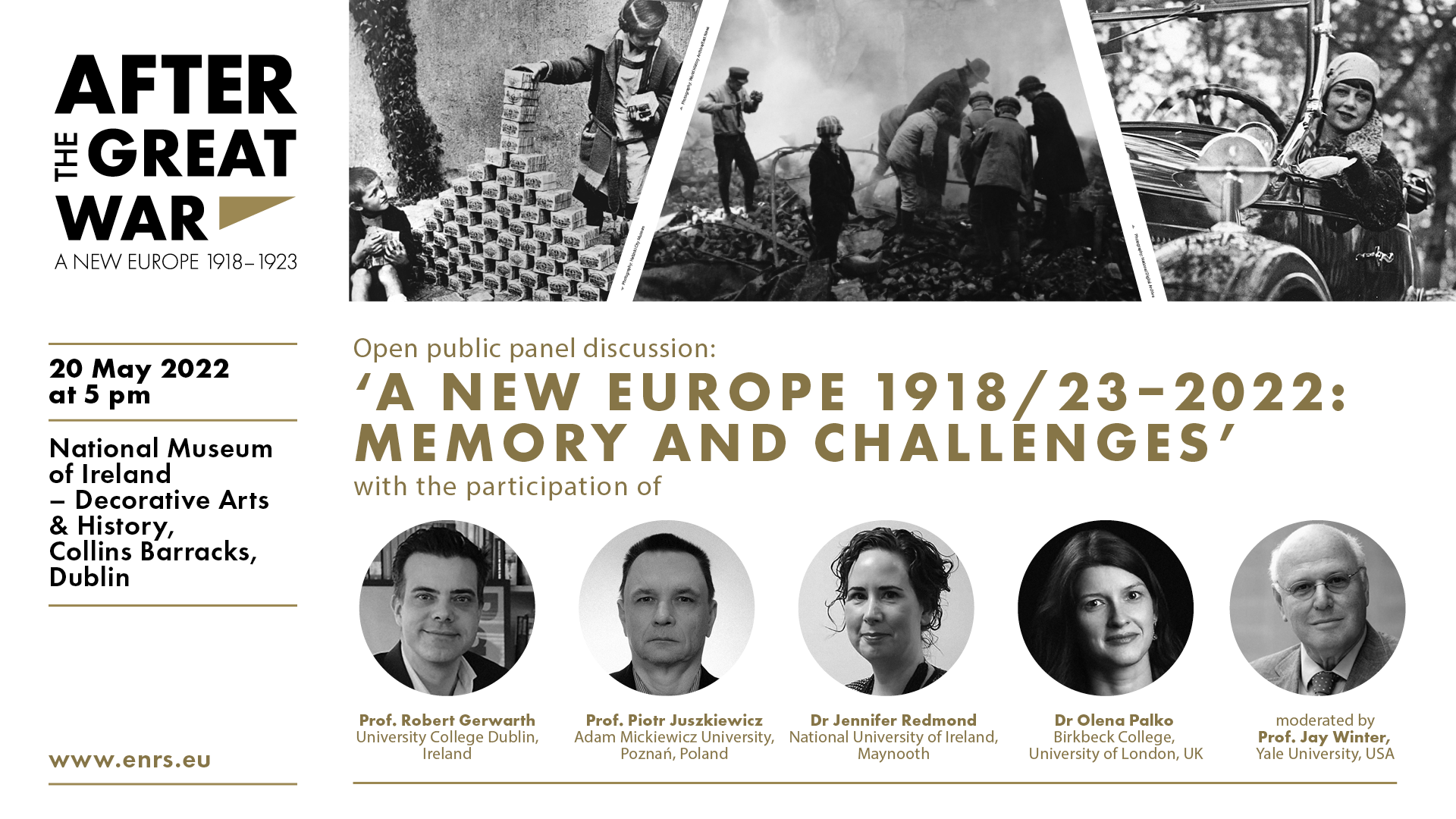On 20 May 2022 at 5 p.m. (GMT+1), following the official opening of the 'After the Great War' exhibition, an open public panel discussion ‘A New Europe 1918/1923–2022: Memory and Challenges’ will take place in Dublin (National Museum of Ireland - Decorative Arts&History, Collin Barracks). The event will be transmitted on our Facebook and YouTube. We cordially invite everyone interested!
The discussion will be held with the participation of:
- Prof. Robert Gerwarth, University College Dublin, Ireland;
- Prof. Piotr Juszkiewicz, Adam Mickiewicz University, Poznań, Poland;
- Dr Olena Palko, Birkbeck, University of London, England;
- Dr Jennifer Redmond, Maynooth University, National University of Ireland;
- and will be moderated by Prof. Jay Winter, Yale University, New Haven, USA.
You can watch the live transmission of the debate here
The debate ‘A New Europe 1918/1923–2022: Memory and Challenges' accompanies the opening of the outdoor exhibition ‘After the Great War: a New Europe 1918–1923’. The exhibition presents the complicated emergence of a new order in Central and Eastern Europe in the first years after 1918. Many of the topics discussed in the exhibition, which took place a century ago, are also very relevant today – especially after the Russian attack on Ukraine. Thus in order to better understand our times, the ENRS would like to discuss the similarities of the situation and the challenges/threats to the new order in Europe around 1918 and now.
Read more about the exhibition
The debate will also be devoted to presenting a book that has recently been published: A New Europe, 1918–1923: Instability, Innovation, Recovery, ed. by B. Dziewanowski-Stefańczyk and J. Winter (Routledge, 2022) in the book series established by the ENRS and Routledge. The book offers insights into the political, diplomatic, military, economic and cultural circumstances out of which the New Europe was born. It focuses on three kinds of narratives that relate to conflicts and violence; the recasting of civil society through the creation of new structures and institutions; and to remembrance and the representation of these years in the public sphere.
Read more about the ENRS publishing series

